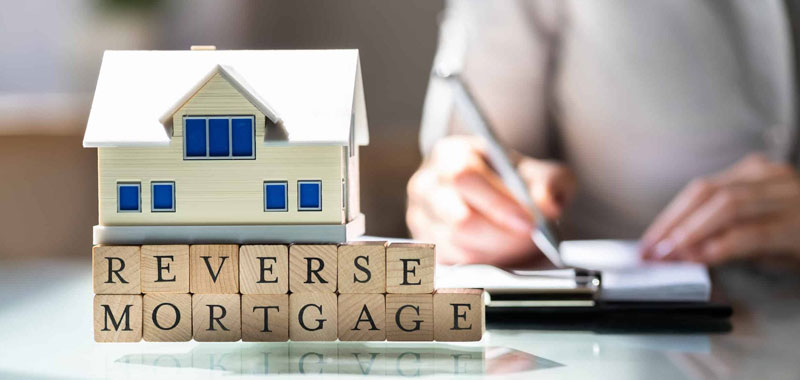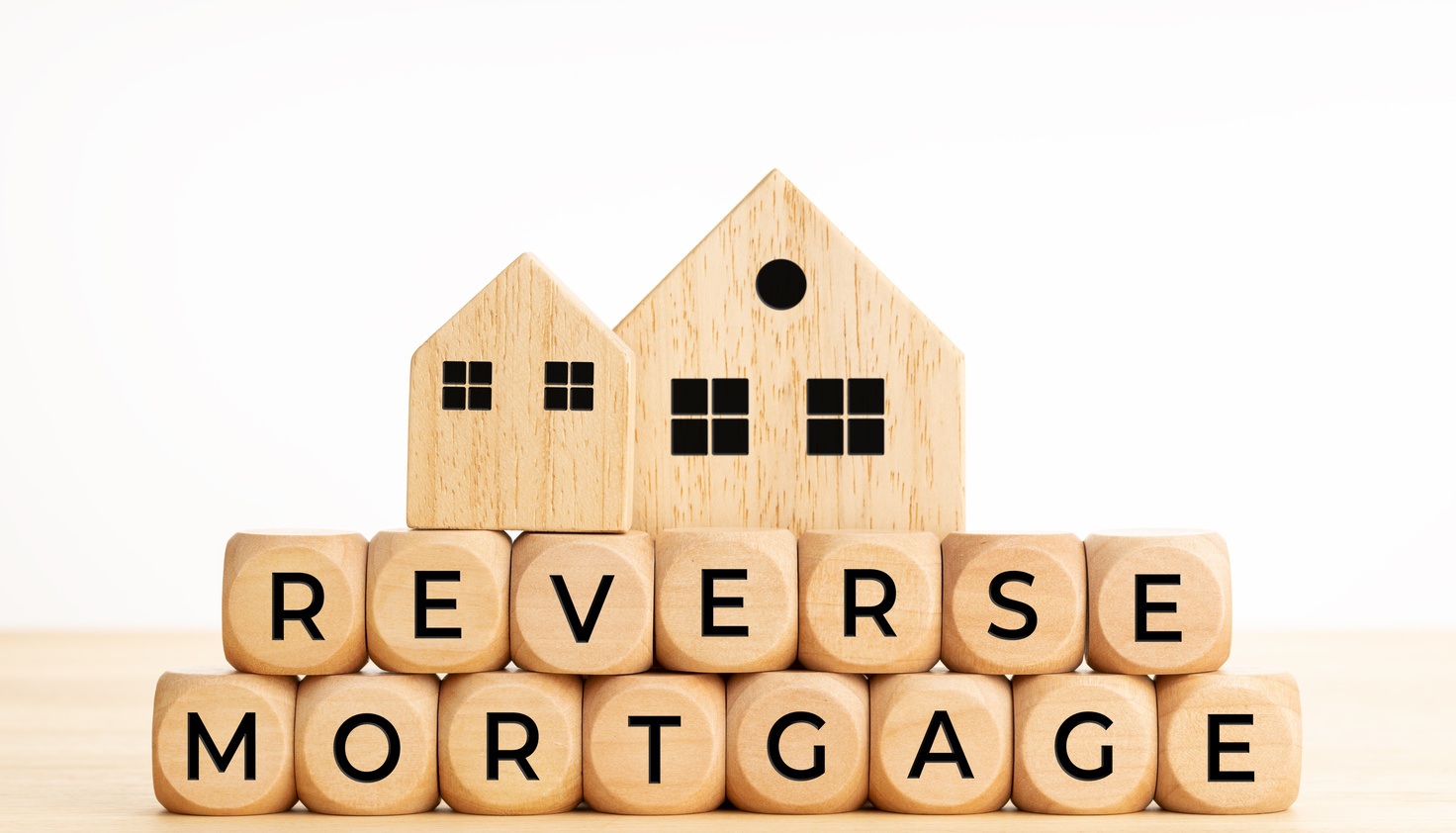Key Factors to Consider Before You Purchase Reverse Mortgage
Key Factors to Consider Before You Purchase Reverse Mortgage
Blog Article
Empower Your Retired Life: The Smart Method to Acquisition a Reverse Home Mortgage
As retired life strategies, numerous people look for efficient strategies to improve their monetary freedom and wellness. Amongst these strategies, a reverse mortgage emerges as a feasible alternative for homeowners aged 62 and older, enabling them to touch into their home equity without the requirement of monthly settlements.
Recognizing Reverse Mortgages
Understanding reverse home loans can be critical for homeowners seeking financial flexibility in retirement. A reverse home loan is a monetary product that enables eligible property owners, usually aged 62 and older, to transform a section of their home equity right into cash money. Unlike standard home loans, where debtors make regular monthly repayments to a loan provider, reverse mortgages allow house owners to get payments or a lump amount while retaining ownership of their building.
The quantity available through a reverse home mortgage relies on several elements, consisting of the home owner's age, the home's worth, and current rates of interest. Importantly, the loan does not have actually to be settled until the homeowner sells the home, leaves, or dies.
It is important for possible debtors to understand the effects of this monetary product, consisting of the effect on estate inheritance, tax factors to consider, and ongoing responsibilities associated with building maintenance, tax obligations, and insurance coverage. Furthermore, counseling sessions with accredited specialists are typically required to make sure that borrowers totally comprehend the terms and problems of the funding. Overall, a detailed understanding of reverse mortgages can encourage property owners to make enlightened decisions regarding their monetary future in retired life.
Benefits of a Reverse Home Loan
A reverse home mortgage offers a number of compelling advantages for qualified homeowners, especially those in retired life. This financial tool permits seniors to convert a part of their home equity right into money, supplying essential funds without the need for regular monthly home loan repayments. The cash obtained can be used for different functions, such as covering medical expenditures, making home improvements, or supplementing retirement income, thus enhancing general economic adaptability.
One substantial benefit of a reverse mortgage is that it does not call for settlement until the homeowner moves out, markets the home, or dies - purchase reverse mortgage. This function allows retired people to preserve their way of life and satisfy unforeseen prices without the worry of monthly settlements. Additionally, the funds gotten are commonly tax-free, allowing home owners to use their cash money without worry of tax obligation ramifications
Moreover, a reverse home loan can give comfort, recognizing that it can function as an economic safety and security internet throughout tough times. House owners also retain possession of their homes, guaranteeing they can proceed living in a familiar atmosphere. Ultimately, a reverse home mortgage can be a calculated monetary source, equipping retirees to handle their finances properly while enjoying their gold years.
The Application Refine
Browsing the application process for a reverse home loan is a crucial step for property owners considering this economic alternative. The initial stage entails assessing eligibility, which usually requires the house owner to be at least 62 years old, own the property outright or have a reduced home mortgage equilibrium, and inhabit the home as their key residence.
When eligibility is verified, home owners need to undergo a counseling session with a HUD-approved counselor. This session makes certain that they totally understand the ramifications of a reverse home mortgage, consisting of the responsibilities entailed. purchase reverse mortgage. After finishing counseling, applicants can proceed to gather needed documentation, consisting of proof of income, possessions, and the home's worth
The following step entails submitting an application to a lender, that will evaluate the monetary and building qualifications. click to investigate An appraisal of the home will certainly also be conducted to establish its market worth. If accepted, the lender will certainly provide funding terms, which should be assessed thoroughly.
Upon approval, the closing process adheres to, where last files are signed, and funds are disbursed. Recognizing each stage of this application procedure can considerably improve the home owner's confidence and decision-making concerning reverse home loans.

Secret Factors To Consider Prior To Investing In
Investing in a reverse mortgage is a significant financial decision that needs cautious consideration of a number of vital factors. Reviewing your monetary demands and objectives is equally important; identify whether a reverse home loan straightens with your long-lasting plans.

A reverse mortgage can affect your qualification for specific government benefits, such as Medicaid. By thoroughly evaluating these factors to consider, you can make an extra informed choice regarding whether a reverse home loan is the ideal monetary approach for your retirement.
Maximizing Your Funds
Once you have actually safeguarded a reverse home mortgage, properly managing the funds becomes a priority. The versatility of a reverse home loan allows home owners to utilize the funds in numerous methods, however strategic planning is vital to maximize their go to my site benefits.
One vital technique is to develop a budget that outlines your financial goals and month-to-month expenditures. By determining needed expenditures such as health care, residential or commercial property tax obligations, and home maintenance, you can allot funds appropriately to ensure long-lasting sustainability. Furthermore, consider making use of a section of the funds for financial investments that can produce revenue or appreciate with time, such as mutual funds or dividend-paying supplies.
One more essential facet is to keep a reserve. Alloting a book from your reverse home loan can help cover unanticipated costs, offering peace of mind and economic security. Consult with an economic advisor to check out possible tax obligation implications and exactly how to incorporate reverse mortgage funds right into your general retirement method.
Eventually, sensible administration of reverse mortgage funds can boost your financial safety, allowing you to enjoy your retired life years without the stress and anxiety of financial unpredictability. Cautious planning and educated decision-making will certainly guarantee Visit Website that your funds function successfully for you.
Verdict
Finally, a reverse home loan offers a sensible economic approach for senior citizens seeking to enhance their retirement experience. By transforming home equity right into available funds, people can deal with necessary costs and safe extra monetary resources without incurring monthly payments. Careful consideration of the connected terms and ramifications is necessary to maximize benefits. Ultimately, leveraging this monetary tool can facilitate better independence and improve general quality of life throughout retirement years.
Understanding reverse home mortgages can be crucial for property owners seeking monetary flexibility in retired life. A reverse home mortgage is an economic product that allows eligible home owners, usually aged 62 and older, to convert a part of their home equity into cash. Unlike typical home mortgages, where borrowers make regular monthly payments to a lender, reverse mortgages allow home owners to receive payments or a lump sum while preserving ownership of their property.
Overall, a comprehensive understanding of reverse home loans can encourage homeowners to make informed decisions concerning their economic future in retired life.
Seek advice from with a monetary expert to check out possible tax implications and just how to incorporate reverse home loan funds right into your general retirement strategy.
Report this page